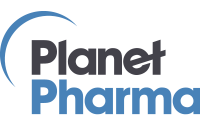Networking, especially in the life sciences industry, can mean the difference between landing that unique opportunity or falling flat. But it doesn’t have to be all about making new connections at an awkward cocktail hour. Successful networking can also mean keeping old connections warm.
Does a former coworker of yours work at the hottest biotech in Boston? Would you be comfortable reaching out to have a good word put in for you? If the answer is not a resounding “yes” then keep reading. Here are three reasons why you should be networking.

The industry is surprisingly small
Although the industry is experiencing exponential growth and might seem larger than life, it’s actually quite small with limited degrees of separation. This is especially true in hubs like Boston and the San Francisco Bay Area where it can feel like everyone knows each other. This means that connections you already have are likely connected to people who are in a position to hire you—or better yet, your connections are now the ones who do the hiring.
It can accelerate career advancement
Keeping in touch with former co-workers isn’t just nice—it’s also smart networking. No surprise here: when you have a good rapport with your peers it can open up all sorts of growth opportunities for your career down the line, especially if they end up having a say in your employment. Colleagues and peers who, not-so-long ago, were sharing workspaces and passing each other in the hallway are now in leadership roles and corner offices. When they’re evaluating and hiring talent, make sure they think of you. Even more importantly, familiarize yourself with those in different departments so that if you ever decide to transition out of the lab and into clinical research, you know who to call.
It can provide the upper hand in a competitive market
The market is only getting more competitive with strong talent. But recent LinkedIn findings state that candidates who come referred are four times more likely to be hired. With those odds on your side, it’s a no-brainer that you should keep in touch with people in your network and strengthen those bonds. People typically like helping other people and, if the time comes when you need a referral, they’ll be there for you. Likewise, make sure to pay it forward when you’re in a position to help someone.
The list goes on and on but realistically you can’t afford NOT to be doing this. Inevitably, when you find yourself on the hunt for your dream job, it’ll be a lot more comfortable reminiscing about old memories with your new boss rather than trying to impress a stranger.
Photo Credit: Canva
How to Create an Effective Pharmaceutical Resume
Your resume is often the first impression you make on a prospective employer in the pharmaceutical industry, so it’s essential to ensure it effectively showcases your skills, experience, and qualifications. Here are some tips for creating an effective pharmaceutical resume that stands out from the competition: Tailor Your Resume to the Job: Customize your resume…
Planet Pharma EU’s October MVP: Mona Azhari
We’re highlighting some of the amazing people who make up our Planet Pharma. Today, let’s get to know Mona Azhari with our Planet Pharma EU team. Name: Mona Azhari Job Title: Recruitment Team Lead How does it feel to be recognised by your colleagues and what was your secret to success this month?…
Planet Pharma EU’s September MVP: Alastair Aitken
We’re highlighting some of the amazing people who make up our Planet Pharma. Today, let’s get to know Alastair Aitken with our Planet Pharma EU team. Name: Alastair Aitken Job Title: Principal Recruiter How does it feel to be recognised by your colleagues and what was your secret to success this month? Feels…



